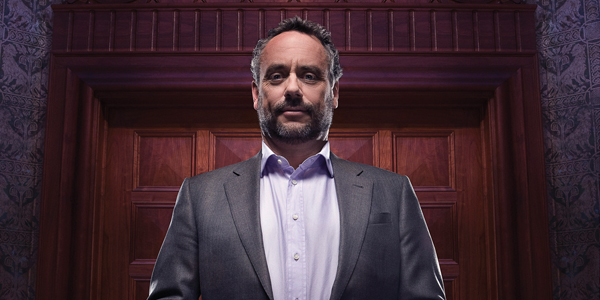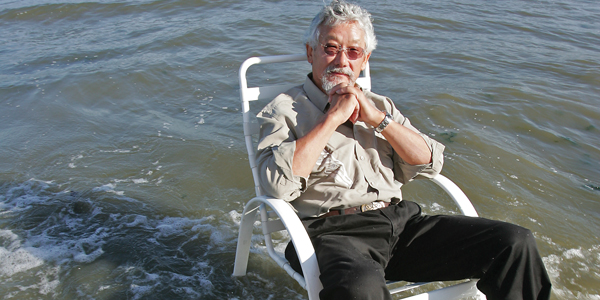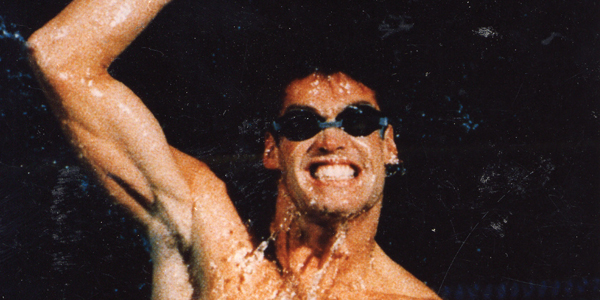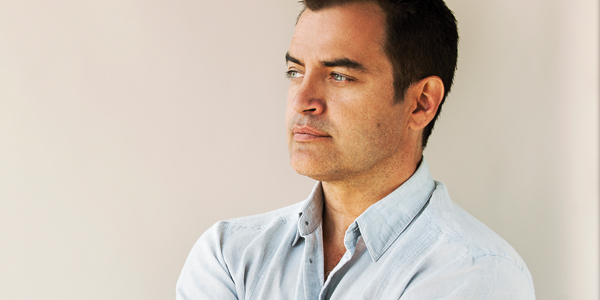I think it’s really important for entrepreneurs to define their genius or their passion and pursue it. What do you consider your genius to be and how did you ensure that you would capitalize on it?
My genius was partly mathematics and learning out of books, patched together with building things that were computer related. When I was reading your book, iWoz you shared about how you really understood that management was not your genius, you were very clear about that.
I grew up with very strong feeling of wanting to be a good person; I wanted to help others. I don’t like to stomp on people. I don’t want to think of some people as “special” and others not. I’m not interested in acting like I’m above others. Ironically, equal treatment of others really gets in the way of good management because I want to be fair to everyone.
What advice do you have for people who don’t fit the norm? That includes entrepreneurs, inventors, and engineers. –Innovators that want to create and invent but may not have the required support around them. What advice would you give them?
Plan on a long time, a lot of years for accidentally running into any bits of learning material about the field you’re interested in. Even if it’s something normal like a garage door opener and you have an idea for a unique one, pay attention to all the articles and books that you encounter. Just don’t expect it to happen overnight by a plan.
In your book you talk about accidents, serendipitous events that led you to where you are today. Is that what you’re referring to? –To always keep your eyes open looking for information? I know there were a couple of journal articles that played a huge role in piecing together your puzzle in creating the first computer.
I think if you look at anyone successful in any category in life, they probably have similar stories to tell about little accidents that kind of pertains to something that gets them to where they are today. It’s important not to worry if it seems like you’re just making small steps, one at a time. You just need to remind yourself that you’re learning more and more about what you’re passionate about. Don’t worry about the time that it takes. But you can accelerate the time if you know what to search for. Keep your eyes open so you recognize it when it comes. A lot of people might even tell you, “It’s impossible”, or “That’s not the way to do it”, or “That’s too expensive”. –Well don’t let that stop you from going after your dreams.
That’s great advice. I heard you give a keynote address recently and you kept referring to the importance of working on projects that are “noble and pure” – and those words really caught my attention. I love that you chose those words. Why is the “noble and pure” piece so important to you?
A was referring to a way of thinking…a pure way of thinking – pure is similar to simple, very few pieces. When your gut wants to connect one thing to another without jumps in between, that’s a type of pureness. In mathematics, if you can boil a problem down to something simple, simple math concepts and formulas, I always feel you must be on the right track.
One of your core beliefs is honesty. How has this served you in the business world?
I have to be very, very honest wherever I am. I don’t like to leave out details. It gets me in trouble with my own companies. I’d rather speak the truth and educate people fully so they know what’s really going on.
And how has your sense of humour served you?
I was shy. I was an electronics genius. A sense of humour is a type of release when you’re not participating in normal social outlets…going to parties or doing whatever other kids are doing. Humour is a way to find happiness. I love making people laugh and I love laughing heartily at jokes on YouTube, or stories, or things on the internet, things where somebody was a little overly stupid. –Yesterday there was an article about a guy that robbed a house and logged onto his Facebook account. I find that funny.
What do you think the key to happiness is?
For me, I built my own keys and I don’t know if they would apply to very many other people. I think everybody has their own key. I think part of being happy is finding your own key, deciding, “I want to be happy”. For me, happiness is very much intertwined with being honest. It’s about keeping to the agreements made, even things down to obeying the laws. Also, once you learn that you can have a different point of view as someone, and you don’t have to argue it out to win, you’ll be happy. Just smile and walk away knowing that you’re true to your own thinking. I know I’m right in my world and they know they’re right in their world and we can both be happy. Just follow your own high level principles.
When did you begin to really trust your instincts or listen to your intuition? That’s sort of what you are focusing on here, knowing in your own heart who you are and what you believe and allowing the rest to just unfold. When do you think that happened for you?
I was very independent through school from about sixth grade on, so I did a lot of stuff very privately on my own knowing. It was a time that I was doing the thing that made me happy – learning computer speak. There was no way I could have stumbled onto it nor was there a reason for me to love computers, I just did. I didn’t do it to show up anybody else. When I got into the computer stuff, I got so skilled at it that if someone questioned me, I was able to tell myself, “I don’t care which way everyone else is going, I’ll just look at it a different way”. Not only that – and this I find hilarious – I wasn’t totally trusting my instincts, it was that I had to find incredible ways to build things without money. Not having money really forced me to go in different directions to find solutions that were the least expensive. I was good at taking little parts and building them into something bigger that did useful things.
Why has your advice to engineers and inventors in the past been for them to work alone?
It’s not always work alone but work alone to the extent that you can. If you’re designing something it’s better that you start out with your idea and actually build the part yourself. It forces you to see the working product fit into all the other parts. Plus, you’ll feel much more proud that you did something that has value. Crossing as many disciplines as you can makes you feel a lot closer to what you’re working on. Plus, there are a lot of inefficiencies that are expressed by the phrase, “designed by a committee”. If the committee is only one person it’s very easy to resolve any disputes.
What emotion best describes the feeling when you find a solution to a problem when you’re creating a new innovation. Is it the emotion that drives you?
Sometimes you get an idea in your head and you realize, “wow”, this will probably work if I write a certain program, or build a certain device, and that’s a eureka moment. Your question pertains to an engineer or the software developer working very late at night trying to solve a problem. Something isn’t working in the program and there might be a little mix up. Maybe they misspelt the word ‘sum’ typing it as ‘same’. It might be something simple like that. You’re working so hard and you finally find the little bug that fixes everything and THAT is like the biggest emotional high that you get as an engineer!
In terms of lifetime achievement, what have you been most proud of?
I usually say the Apple II because I can go back and think of all the steps in my head it took to make it and why and how well it worked for people and where it took the world. But, I’m also very glad that I got to live and have a family and have children and watch them grow and all that too.
What do you feel in your heart is still left for you to accomplish in this lifetime?
I believe that I’m going to still greatly inspire young people who want to do something in life and be great. And, I hope more than anything else, to be a positive influence on education as it relates to creativity here in the United States.
Now that’s noble and pure!
There are so many mistakes being made because people think in terms of quantity instead of quality. They believe if they have more computers, their schools will be better off. But that’s not the right thinking. Computers are not the solution. They’re just a tool for a person to do a good job. A new approach to education is much more important; especially one that focuses on bringing out the creativity of people. Allowing for that creativity.
I would say if I had one goal more than anything else, it would be to eventually get the money to schools that they need. I think this is possible if a family of five gets five votes; that’s what will bring in the money. A family of two doesn’t want to spend money on schools. That’s where the shortage comes from. I’d really like to make this change. That’s my idea. A family of five should have five votes and someday somebody important is going to hear it.
What are you most grateful for?
I’m most grateful for what we talked about earlier, the keys to happiness I first developed when I was twenty years old. Instead of being an outcast, a nerd, that other people couldn’t socialize with, I really had a good feeling about myself. I’m also very lucky because I never had to worry about a job because I was so skilled at electronics. Even in high school, I didn’t have to worry about it.
Why does the scene in the movie, Walk the Line, where the producer tells Johnny Cash to, “Play a song in a way that could save the world”, resonate so profoundly with you? Why does that hit a nerve with you?
Sometimes you pull out things that are different, things that are unique, things that inspire other people. They come from giving up all the artifices; here is how you should do it, just try this thinking. Creative talent almost always comes from forgetting about a set of rules. Throw that out and you’ll have the motivation. That’s why I like that scene.
What three myths about the Apple story would you like to set straight for the record?
It’s so hard to say. I can’t really answer that one. There are things that are myths and almost everybody has their own ideas that I wouldn’t even want to set straight. They are what they are.
You consider your father the single greatest influence on your life. In what ways did he shape who you are today? He was really such a good teacher and really fostered your curiosity. You probably can’t speculate where you’d be without him but how do you believe he shaped you for who you are today?
The most important things are how I think about the world and how I think about people, the environment, the entire universe and nature, how I act, what core principals should be respected in society; he spoke about all of this when I was young. He was never instructing, “This is how it is”, or “You have to think this way”. He would always throw out how he thought and the other approach, but he really let me chose on my own and that was the most important of all. I wound up very much like him. He shaped what things I take into account when I make decisions; how to treat other people. You can never replace that.
The people that are reading this magazine are entrepreneurs that are looking to be inspired, so for my last question, any last words of advice for people following their dream? What you would tell them if they were sitting right in front of you?
Entrepreneurship, starting new companies, new businesses, realizing your dream – sometimes you have to fight the big businesses that already exist. They just want to keep on with what they’ve got. That’s a problem. You should be motivated to find new things to invest in, that’s what creates wealth. The United States is slipping down in almost every measurable category in the world. We used to be near the top, 50 or 60 years ago, now we’re 27th or 37th in all categories of measurement like health and education. We need to innovate; we’ve got to start finding the key to getting back to being the leader of the world. The leader of the world shows up in new companies. I think it’s the noblest thing you can try. One thing is beware; it takes a certain kind of talent to found a company. You need to be able to think of an idea for a product or service but you also need the technical talent. You really need technical talent that’s not normal. You need to find people, especially young people, who will follow your dream and make it work even if they’ve never done it before. Because they’ll find a way. Process is very important to any new company, not just the business.
I just thought of one more question…. You were talking in your book about how you wavered on being a teacher or going into engineering. I know you have volunteered as a teacher in the past, going into your local classrooms to teach. Are you are still doing that? Are you there for kids in that capacity?
First of all, it’s more of an example of knowing who I was in life and even after Apple was successful, making the effort and not following the normal formulas for success. I went back and did things I would have done even if there had been no Apple. I did teach, I taught teachers, I did it for 15 years. I no longer have an inclination to go back. I don’t’ see my life as doing the same job forever. I like to move on. Been there, done that – I’ve learned a lot from it and have been inspired by what’s right and what’s wrong in education and computers in education. I’ve done a lot of thinking about that.
My life has moved on to so many other new categories they all excite me.






